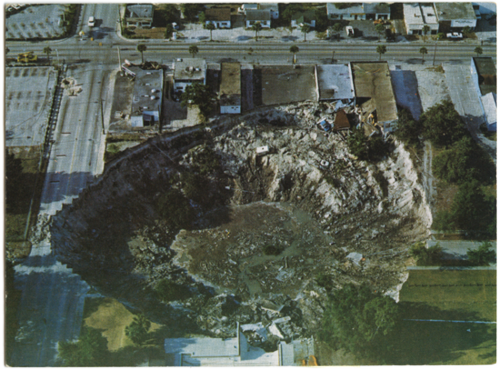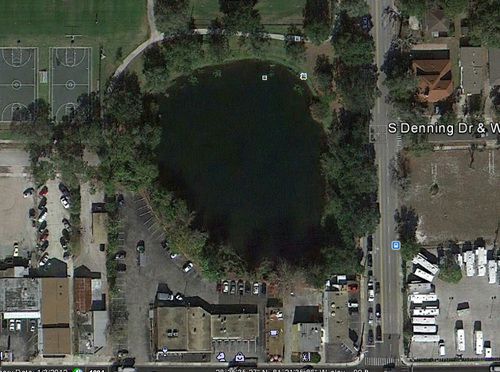The story out of Florida today is a horrific one. A man was in his bad bed around 11 p.m., when the earth opened up and swallowed him. Jeffrey Bush, 37, is presumed dead below his home near Tampa.
Sinkholes are common in Florida, where the limestone dissolves and can no longer hold the weight above.
But people don’t usually die. Anthony Randazzo, who makes his living detecting and sealing sinkholes, told USA Today he can recall only two deaths in 40 years — both were in Florida and both were people drilling water wells at the time.
The largest sinkhole witnessed by a person in the U.S. was this:
It happened in 1981 when Mae Rose Williams looked out the window of her home in Winter Park, Florida and saw her sycamore disappear. She had time to get her family out before her house went, too. Over the next few days, a dozen businesses — including a car dealership — and the city swimming pool succumbed to the 110-foot-deep hole.
Google Earth reveals it is now a lake. Lake Rose.
Some sections of Minnesota are susceptible to sinkholes. The Karst region — southeast Minnesota — lies on top of limestone in some places. Fountain, Minnesota, in fact, billed itself as the “Sinkhole Capital of the World.”
But it’s not just the southeastern end of the state that is susceptible. Some years ago — nine, to be exact — MPR reporter Stephanie Hemphill visited Askova, Minnesota in the northeastern part of the state, where sinkholes dot the landscape. At the time, residents were concerned one was too close to the town’s sewage treatment plant for comfort.
But none of the sinkholes in this neck of the woods appears to be anywhere near as threatening as what happened in Florida.


